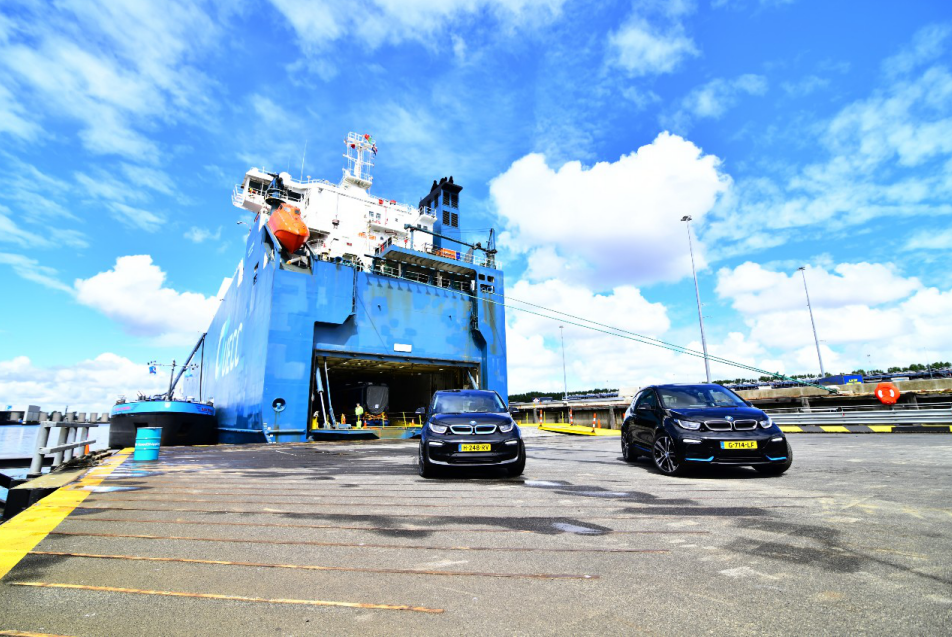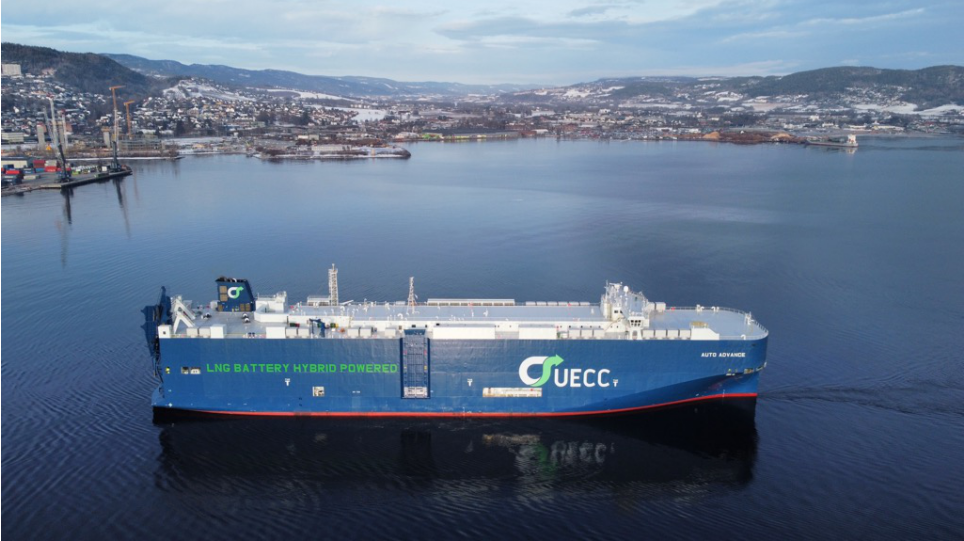
United European Car Carriers (UECC) is setting a remarkable example in the maritime industry with its strategic investments in alternative fuels. The European leader in sustainable shortsea shipping is on track to surpass its ambitious target of a 45% emissions reduction by 2030, thanks to a significant increase in biofuel usage across its fleet last year.

UECC, known for its innovative approach to decarbonizing its pure car and truck carriers (PCTCs), has been integrating five LNG-fueled newbuilds and ramping up biofuel usage. This effort has paid off commercially, especially in light of new green regulations, according to Daniel Gent, UECC’s Energy and Sustainability Manager.
Last year, UECC more than doubled its use of ISCC-certified sustainable biofuel B100, increasing from 6,500mt in 2022 to 14,000mt. This initiative resulted in a total tank-to-wake emissions reduction of over 60,000 tonnes across its 14-vessel fleet in 2023. Remarkably, the increased biofuel use accounted for 40,000 tonnes of this reduction, with the remaining cuts coming from LNG usage. This represents a near-250% increase in emissions reduction compared to the 24,200 tonnes cut in 2022.

UECC’s multi-fuel LNG battery hybrid pure car and truck carrier Auto Advance
Positive EU ETS Impact
Gent highlights that these achievements are positioning UECC to not only meet but potentially exceed its emissions reduction target by 2030. “This clearly has a positive impact for those bio-supportive cargo owners in terms of reducing costs related to the EU Emissions Trading System (EU ETS),” he says. Moreover, 85% of UECC’s fleet earned a C-rating last year under the IMO’s Carbon Intensity Indicator (CII), with expectations that all ships will achieve this rating or higher this year.
The UECC fleet is already surpassing the forthcoming FuelEU Maritime regulation’s requirement for a 14.5% reduction in GHG intensity by 2035. This success is bolstered by the delivery of five eco-friendly newbuilds over the past seven years, including two dual-fuel LNG vessels and three multi-fuel LNG battery hybrid units. The use of LNG has been instrumental, reducing CO2 emissions by about 25%, SOx and particulate matter by 90%, and NOx by 85%. The latest battery hybrid newbuilds also exceed the IMO’s target of reducing carbon intensity by at least 40% from 2008 levels by 2030.
Pioneering Alternative Fuels
Looking forward, UECC plans to source alternative carbon-neutral fuels like bio-LNG and e-LNG to enhance its vessels’ green performance further. The company’s adoption of alternative fuels has grown exponentially since it launched its biofuels program in 2020, initially piloting biofuel use on the vessel Autosky. This program has been supported by time-chartered vessel owners, clients such as BMW, fuel suppliers like GoodFuels, industry partners, and parent companies NYK and Wallenius Lines.
“We are now in the fifth year of our biofuels program, and it has gone from strength to strength,” Gent explains. UECC’s proactive approach includes early-stage analysis of new biofuels to evaluate their technical suitability, sustainability, and commercial viability. This ensures the best solutions for customers and provides the sector with a blueprint for biofuel assessment and adoption.
In 2023, UECC expanded the use of green fuels to cover 30% of its fleet, up from 18% in 2022, aiming for 50% coverage this year and 80% by 2030. Gent is optimistic about surpassing this target, especially with initiatives like testing the Cashew Nut Shell Liquid (CNSL)-based biofuel FS.100 in collaboration with the ACT Group. “Increasing the pool of sustainable drop-in fuels offers a pathway for shipping to achieve rapid emissions cuts on existing vessels,” Gent notes. Combining these fuels with energy efficiency measures can further accelerate decarbonization.
By progressively advancing the use of alternative fuels, UECC is not only reducing emissions exposure for its clients but also securing long-term regulatory compliance and promoting industry efforts toward the net-zero goal.

